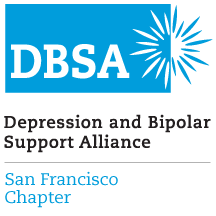DEPRESSION
Johann Hari on Depression and Anxiety
Johann Hari's book, 'Lost Connections' explores the real causes and the increasing rates of depression and anxiety.
"The best moments in life aren't when your ego is fed and flattered, but when you lose your sense of self entirely - dancing, writing, sex, singing, flow"
- Johann Hari
Depression
Determining if persistent, unshakable dark feelings are a result of depression can be the first step toward healing and recovery. Read through these warning signs to see if it’s time for you to see a mental health professional.
Signs of Depression:
1. Hopeless Outlook
Depression is a mood disorder that affects the way you feel about life in general. Having a hopeless or helpless outlook on your life is the most common symptom of depression. Other feelings may be worthlessness, self-hate, or inappropriate guilt. Recurring thoughts of depression may be vocalized as all-or-nothing thinking such as, “It’s all my fault,” or “I do everything wrong. What’s the point?”
2. Lost Interest
Depression can take the pleasure or enjoyment out of the things you love. A loss of interest or withdrawal from activities that you once looked forward to — sports, hobbies, or going out with friends — is yet another telltale sign of major depression. Another area where you may lose interest is sex. Symptoms of major depression include a decreased sex drive and even impotence.
3. Increased fatigue and sleep problems
Part of the reason you might stop doing things you enjoy is because you feel very tired. Depression often comes with a lack of energy and an overwhelming feeling of fatigue, which can be among the most debilitating symptoms of depression. This could lead to excessive sleeping.
Depression is also linked with insomnia, as one might lead to the other and vice versa. They can also make each other worse. The lack of quality, restful sleep can also lead to anxiety.
4. Anxiety
While depression hasn’t been shown to cause anxiety, the two conditions often occur together. Symptoms of anxiety can include:
-
nervousness, restlessness, or feeling tense
-
feelings of danger, panic, or dread
-
rapid heart rate
-
rapid breathing
-
increased or heavy sweating
-
trembling or muscle twitching
-
trouble focusing or thinking clearly about anything other than the thing you’re worried about
5. Irritability (particularly in men)
Depression can affect the sexes differently. Research shows that men with depression may have symptoms such as irritability, escapist or risky behavior, substance abuse, or misplaced anger.
Men are also less likely than women to recognize depression or seek treatment for it.
6. Changes in appetite and weight
Weight and appetite can fluctuate for people with depression. This experience may be different for each person. Some people will have an increased appetite and gain weight, while others won’t be hungry and will lose weight.
7. Uncontrollable emotions
One minute it’s an outburst of anger. The next you’re crying uncontrollably. Nothing outside of you prompted the change, but your emotions are up and down at a moment’s notice.
8. Looking at death
People who die by suicide usually show symptoms first. Often people will talk about it or make a first attempt before succeeding in ending their life. If you think someone is at immediate risk of self-harm or hurting another person:
-
Call or text 988 or your local emergency number.
-
Stay with the person until help arrives.
-
Remove any guns, knives, medications, or other things that may cause harm.
-
Listen, but don’t judge, argue, threaten, or yell.
If you think someone is considering suicide, get help from a crisis or suicide prevention hotline,
please call the National Suicide Prevention Lifeline at 988.
